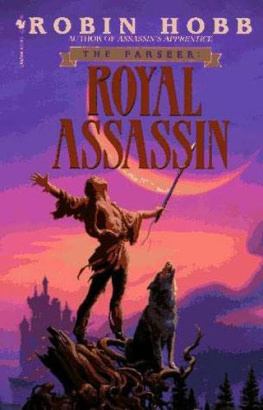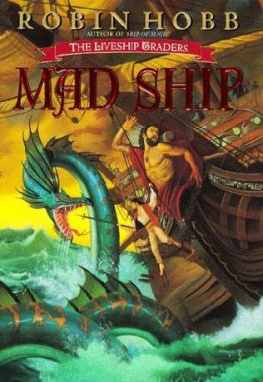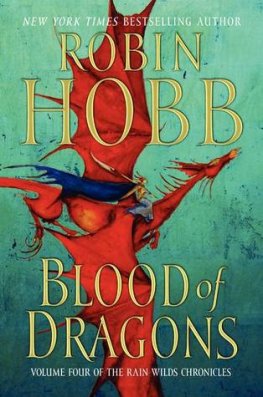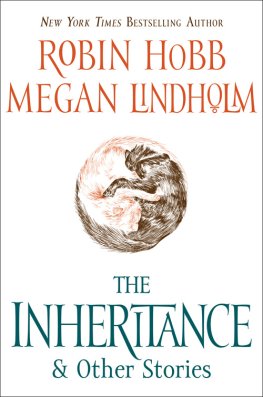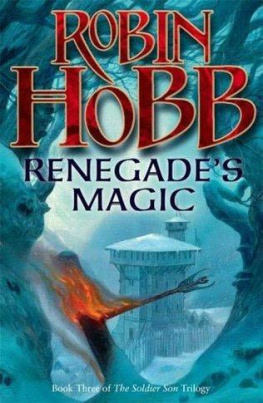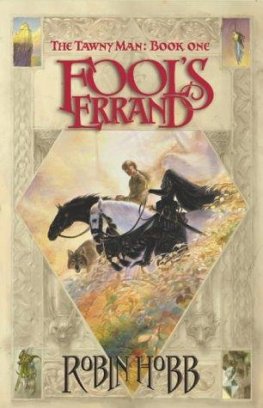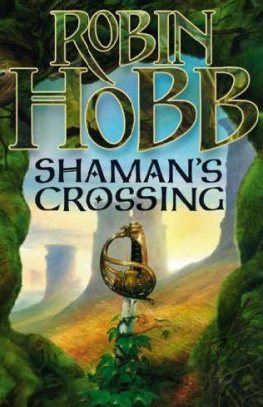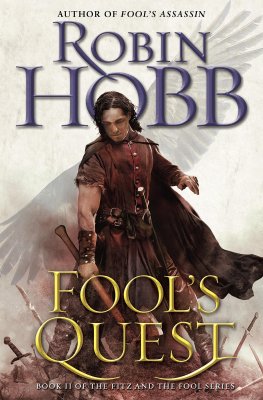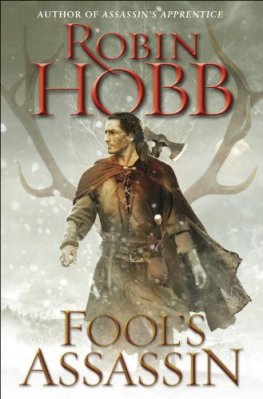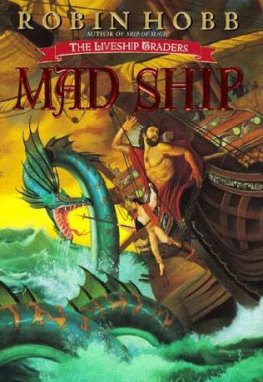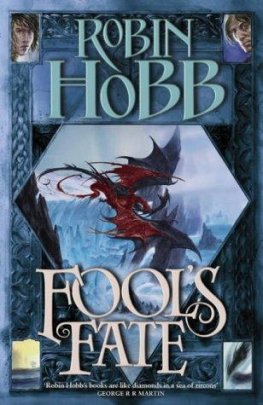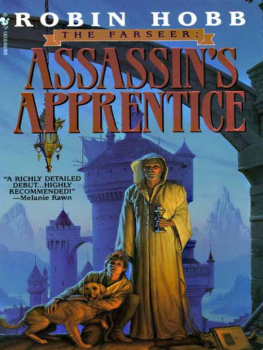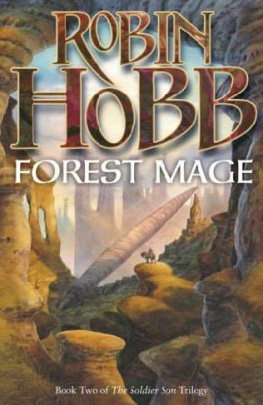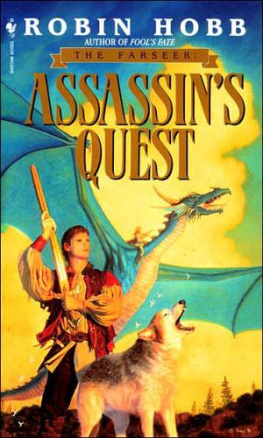Annotation
Continuing in the tradition of her first book (Assassin's Apprentice) Hobb propels the Farseer saga into its second installment with irresistible plotting and memorable characters. Fitz is a trained assassin in the service of King Shrewd and also the king's illegitimate grandson. He is sworn to protect heir to the throne Prince Verity and Verity's new bride, but his task is complicated by an invasion of vicious barbarians who turn helpless captives into zombie-like Forged Ones. The home front is no safer, with an ailing King and usurpers to the throne waiting in the wings. Romance, sibling rivalry, battlefield exploits, betrayal, political intrigue and telepathic magic insure that there's never a dull moment in the Kingdom of the Six Duchies. Through deft description and characterizations, Hobb manages to create a kingdom that looks like a fairy tale but feels like the real world?which makes it almost impossible not to become immersed in Hobb's fantasy epic. The ending clamors for a sequel-and hopefully sooner, than later.
Robin Hobb
Royal Assassin
PROLOGUE. Dreams and Awakenings
WHY IS IT forbidden to write down specific knowledge of the magics? Perhaps because we all fear that such knowledge would fall into the hands of one not worthy to use it. Certainly there has always been a system of apprenticeship to ensure that specific knowledge of magic is passed only to those trained and judged worthy of such knowledge. While this seems a laudable attempt to protect us from unworthy practitioners of arcane lore, it ignores the fact that the magics are not derived from this specific knowledge. The predilection for a certain type of magic is either inborn or lacking. For instance, the ability for the magics known as the Skill is tied closely to blood relationship to the royal Farseer line, though it may also occur as a "wild strain" among folk whose ancestors came from both the inland tribes and the Outislanders. One trained in the Skill is able to reach out to another's mind, no matter how distant, and know what he is thinking. Those who are strongly Skilled can influence that thinking, or have converse with that person. For the conducting of a battle, or the gathering of information, it is a most useful tool.
Folklore tells of an even older magic, much despised now, known as the Wit. Few will admit a talent for this magic, hence it is always said to be the province of the folk in the next valley, or the ones who live on the other side of the far ridge. I suspect it was once the natural magic of those who lived on the land as hunters rather than as settled folk; a magic for those who felt kinship with the wild beasts of the woods. The Wit, it is said, gave one the ability to speak the tongues of the beasts. It was also warned that those who practiced the Wit too long or too well became whatever beast they had bonded to. But this may be only legend.
There are the Hedge magics, though I have never been able to determine the source of this name. These are magics both verified and suspect, including palm reading, water gazing, the interpretation of crystal reflections, and a host of other magics that attempt to predict the future. In a separate unnamed category are the magics that cause physical effects, such as invisibility, levitation, giving motion or life to inanimate objects -- all the magics of the old legends, from the Flying Chair of the Widow's Son to the North Wind's Magic Tablecloth. I know of no people who claim these magics as their own. They seem to be solely the stuff of legend, ascribed to folk living in ancient times or distant places, or beings of mythical or near-mythical reputation: dragons, giants, the Elderlings, the Others, pecksies.
I pause to clean my pen. My writing wanders from spidery to blobbish on this poor paper. But I will not use good parchment for these words; not yet. I am not sure they should be written. I ask myself, why put this to paper at all? Will not this knowledge be passed down by word of mouth to those who are worthy? Perhaps. But perhaps not. What we take for granted now, the knowing of these things, may be a wonder and a mystery someday to our descendants.
There is very little in any of the libraries on magic. I work laboriously, tracing a thread of knowledge through a patchwork quilt of information. I find scattered references, passing allusions, but that is all. I have gathered it, over these last few years, and stored it in my head, always intending to commit my knowledge to paper. I will put down what I know from my own experience, as well as what I have ferreted out. Perhaps to provide answers for some other poor fool, in times to come, who might find himself as battered by the warring of the magics within him as I have been.
But when I sit down to the task, I hesitate. Who am I to set my will against the wisdom of those who have gone before me? Shall I set down in plain lettering the methods by which a Witgifted one can expand her range, or can bond a creature to himself? Shall I detail the training one must undergo before being recognized as a Skilled one? The Hedge wizardries and legendary magics have never been mine. Have I any right to dig out their secrets and pin them to paper like so many butterflies or leaves collected for study?
I try to consider what one might do with such knowledge, unjustly gained. It leads me to consider what this knowledge has gained for me. Power, wealth, the love of a woman? I mock myself. Neither the Skill nor the Wit has ever offered any such to me. Or if they did, I had not the sense nor ambition to seize them when offered.
Power. I do not think I ever wanted it for its own sake. I thirsted for it, sometimes, when I was ground down, or when those close to me suffered beneath ones who abused their powers. Wealth. I never really considered it. From the moment that I, his bastard grandson, pledged myself to King Shrewd, he always saw that all my needs were fulfilled. I had plenty to eat, more education than I sometimes cared for, clothes both simple and those annoyingly fashionable, and often enough a coin or two of my own to spend. Growing up in Buckkeep, that was wealth enough and more than most boys in Buckkeep Town could claim. Love? Well. My horse Sooty was fond enough of me, in her own placid way. I had the truehearted loyalty of a hound named Nosy, and that took him to his grave. I was given the fiercest of loves by a terrier pup, and it was likewise the death of him. I wince to think of the price willingly paid for loving me.
Always I have possessed the loneliness of one raised amid intrigues and clustering secrets, the isolation of a boy who cannot trust the completeness of his heart to anyone. I could not go to Fedwren, the court scribe, who praised me for my neat lettering and well-inked illustrations, and confide that I was already apprenticed to the royal assassin, and thus could not follow his writing trade. Nor could I divulge to Chade, my master in the Diplomacy of the Knife, the frustrating brutality I endured trying to learn the ways of the Skill from Galen the Skill Master. And to no one did I dare speak openly of my emerging proclivity for the Wit, the ancient beast magic, said to be a perversion and a taint to any who used it.
Not even to Molly.
Molly was that most cherished of items: a genuine refuge. She had absolutely nothing to do with my day-to-day life. It was not just that she was female, though that was mystery enough to me. I was raised almost entirely in the company of men, bereft not only of my natural mother and father, but of any blood relations that would openly acknowledge me. As a child, my care was entrusted to Burrich, the gruff stablemaster who had once been my father's right-hand man. The stable hands and the guards were my daily companions. Then as now, there were women in the guard companies, though not so many then as now. But like their male comrades, they had duties to perform, and lives and families of their own when they were not on watch. I could not claim their time. I had no mother, nor sisters or aunts of my own. There were no women who offered me the special tenderness said to be the province of women.

